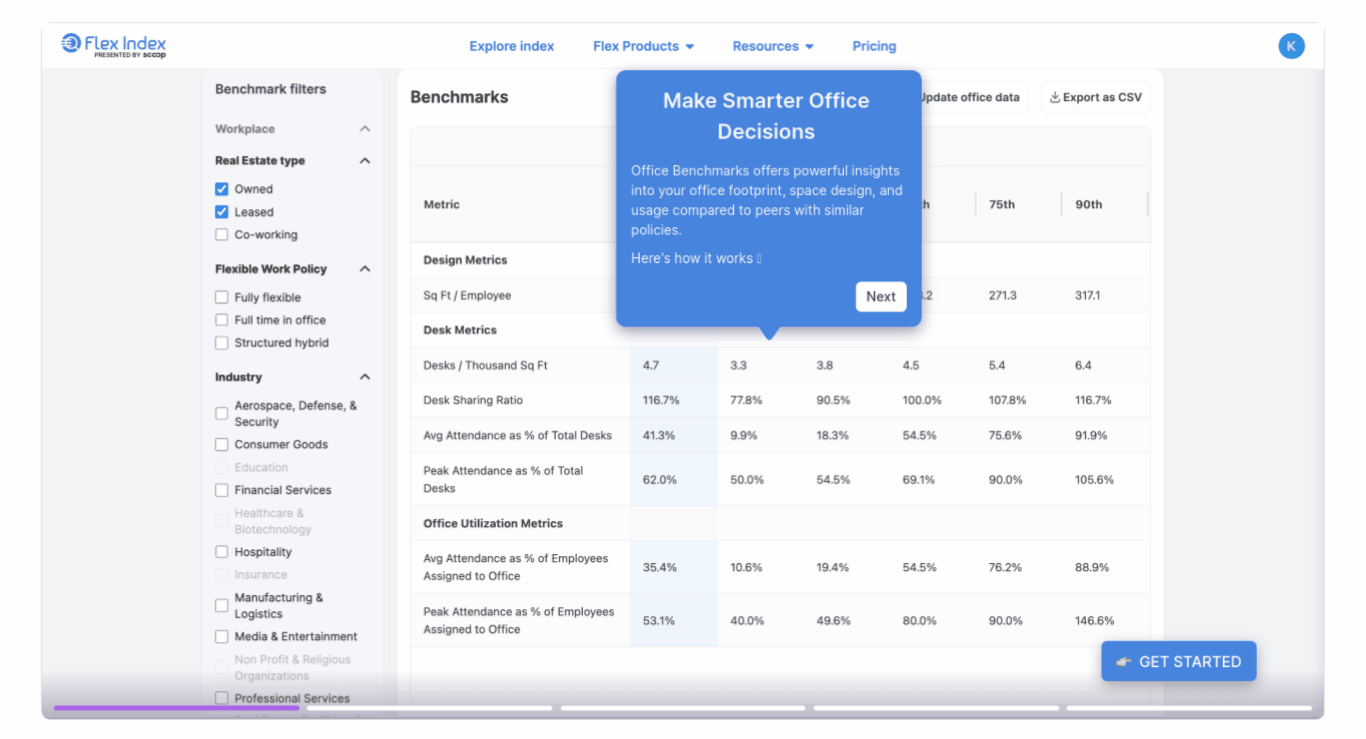Organic Valley's Recipe for Hybrid Success
Plus, an inside look at Ericsson's "big shrink" office strategy
👋 Happy Tuesday! Workers on hybrid schedules report experiencing about 1.1 burnout symptoms on average, slightly more than fully in-person employees who average 1 symptom. Remote workers fare better, showing the lowest rate at 0.7 symptoms on average. These symptoms can manifest as exhaustion, job-related negativity, work anxiety, or feeling disappointed about job performance and career outlook according to WFH Research.
In this week’s edition:
🥛Organic Valley’s Hybrid Win
📊 Company Size & Flexibility
🏢 Ericcson Reduces Office Footprint
Current Subscribers: 8,154
Please forward to colleagues and friends! Link to subscribe.
THIS WEEK’S FLEX FOCUS 🔍
How Structure and Choice Define Organic Valley’s Hybrid Work Policy
What started as a routine facilities discussion at Organic Valley in early 2023 evolved into a transformative approach to hybrid work. The organic foods cooperative, headquartered in rural Wisconsin, developed a three-tier system for desk-based employees: low hybrid (3-5 days in office), high hybrid (4-8 days monthly), and remote work for eligible roles beyond a 100-mile radius.
The results have been striking, particularly for recruitment. Job postings that previously attracted 20-30 candidates now draw hundreds when advertising hybrid eligibility – a tenfold increase in their rural location of just 750 residents. Employee engagement scores have also risen, though some leaders still need support adapting to remote team management.
The Organic Valley case illustrates how asking the right questions – rather than imposing arbitrary return-to-office mandates – can lead to solutions that benefit both the organization and its employees.
FLEX WORK QUICK HITS 💥
Stay ahead of the curve with our curated roundup of the trending flexible work stories making waves right now. Here's what you need to know 👇
WSJ: Top performers and employees with unique skills are often exempt from strict RTO mandates, creating a new "hybrid hierarchy" that's causing tension in the workplace.
US News & World Report: Trump's federal RTO mandate threatens long-standing telework policies and worker retention, despite evidence that remote work benefits government efficiency.
Bloomberg: Blackstone nears deal to buy prime NYC tower, betting on office market recovery despite sector headwinds.
BenefitsPro: Amid ongoing workplace tensions in 2024-2025, new data reveals that despite corporate pushback, hybrid work is becoming the norm while employee stress levels soar, particularly among in-office workers.
STAT OF THE WEEK 📈
Beyond Tech: How Company Size Shapes Flexible Work Policies
The Tech industry has long been a pioneer in workplace flexibility, but when we look beyond Tech, there remains a stark contrast in flexible work approaches based on company size alone. Among non-tech US firms, the majority of companies under 500 employees maintain Fully Flexible policies, while 16% or fewer of larger companies across all size segments offer similar flexibility.
FLEXPERT INSIGHTS 🧠
Half the Space, Twice the Experience
In his recent LinkedIn article, Henrik Jarleskog examines Ericsson's recent decision to significantly reduce its Stockholm office footprint as a bellwether for broader workplace transformation across Europe.
Henrik frames this shift not merely as cost-cutting but as part of a larger movement among Fortune 500 companies toward what he calls "The Big Shrink," embodied in the principle "Half the space, twice the experience." Drawing parallels with similar moves by industry giants like Microsoft, SAP, and Renault, he argues that this transformation reflects the convergence of two powerful forces: the rise of distributed work and AI-driven efficiency.
While acknowledging the potential economic ripple effects on commercial real estate and banking sectors, Henrik positions this evolution as an inevitable step toward a future where offices serve not as default workspaces but as intentional hubs for collaboration, innovation, and purpose-driven gatherings.
FLEX PERSPECTIVES 🎙️
ICYMI: Investing in Connection: A VC’s Take on In-Person Collaboration | Hunter Walk
In this episode of Flex Perspectives, Rob Sadow is joined by Hunter Walk, Partner at Homebrew. Hunter shares his unique insights on whether in-person collaboration is essential for early-stage startups.
Check out the full episode to learn:
What trends we’re seeing in startup work location flexibility office usage
Hunter’s perspective on the role of in-person interactions on startup success
How startups should be intentional and experimental in how they approach in-person collaboration.
Also available on Apple Podcasts.
COMPANY SPOTLIGHT ✨
Simon Fraser University (SFU) is a comprehensive public research university in British Columbia, Canada, offering undergraduate and graduate programs in a variety of subjects. Established in 1965, SFU continuously aims to be Canada's engaged university defined by its dynamic integration of innovative education, cutting-edge research, and far-reaching community engagement. The university's campuses are located in Burnaby, Surrey, and downtown Vancouver.
ONE MORE THING 1️⃣
Add your company to Flex Index
Learn about Office Benchmarks
Share this newsletter with friends and colleagues
FLEX INDEX | OFFICE BENCHMARKS
Office Benchmarks offers powerful insights into your office footprint, space design, and usage compared to peers with similar policies. Maximize your workplace potential and make confident, informed investments.









